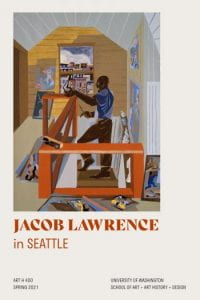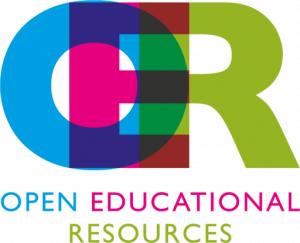February 22, 2022
Open Education Week: It’s Bigger than Free Textbooks
Open pedagogy elevates student voices with projects that go beyond the classroom.
Open Education Week is just around the corner, and the UW Libraries is ready to celebrate all the ways open education promotes affordable access, equity, and the inclusion of more diverse voices in the scholarly conversation.
People often think of free textbooks when they think of open educational resources (OER), but the open education movement also includes open pedagogy.
Open pedagogy refers to practices that engage students in creating information rather than simply consuming it. It leverages the “open” nature of OER to facilitate learning and emphasizes community and collaboration: sharing resources, ideas, and power.
What does that look like? Here are a few possibilities:
- Teams of students collaboratively write and edit a textbook and develop original illustrations — as Comparative Endocrinology classes at UW began doing last year.
- Students edit and improve Wikipedia articles, or create new articles to fill in gaps in coverage.
- Students work with their instructor to revise the course syllabus or to design an assignment or exam questions, showing their proficiency with the material.
What it doesn’t look like is the typical “disposable” assignment—a five-page paper that no one but the instructor and TA will ever read. Instead, open pedagogy elevates the voices of students as scholars in their own right.
The values embedded in open pedagogy can be summed up in 5 R’s attributed to Rajiv Jhangiani:
- Respect the agency of students and creators.
- Reciprocate by contributing to the commons and building community.
- Recognize risk as ever-present, and be mindful that the risks are greater for some (e.g., women, students, scholars of color, precarious faculty).
- Reach beyond the classroom and make an impact.
- Resist destructive forces in order to be antiracist, democratizing, liberatory, and decolonized.
At UW, students and instructors have collaborated on notable open pedagogy projects in the past few years. Badass Womxn in the Pacific Northwest, co-created by Dr. Julie Shayne and students at UW Bothell in 2019, was a ground-breaking open pedagogy project using Pressbooks. Last summer, a book of student-authored essays on acclaimed artist Jacob Lawrence made a splash as one of few art historical works focused on his years as a professor of art at UW. And students in Classics 430 created a collection of openly licensed scholarship on Greek and Roman myth in the form of a virtual museum using UW Manifold.
Several UW open pedagogy projects have used Pressbooks, a digital publishing platform based on WordPress that’s ideal for creating OER and free for students, faculty, and staff. If you’ve used Pressbooks before, watch your inbox for an upcoming survey to help the UW Libraries make this an even more useful tool for the UW community. To get started with Pressbooks for a project of your own, keep reading for a list of Open Education Week events co-hosted by the Open Scholarship Commons.
Contact us to learn more about support for OER and open pedagogy through the UW Libraries.
Celebrate Open Education Week at UW Libraries
The following UW Libraries-sponsored events will take place virtually during Open Education Week, March 7-11, 2022.
Student Authored: UW Open Pedagogy & Publishing — Monday, March 7, 1:30-2:30 p.m. Join us to hear from a panel of UW instructors who will speak about their work developing exciting digital publishing projects with student authors and artists.

- Marie La Fond, Lecturer, Department of Classics, UW Seattle (Museum of Greek and Roman Mythology)
- Julie Shayne, Teaching Professor, School of Interdisciplinary Arts & Sciences, UW Bothell (Persistence is Resistance: Celebrating 50 Years of Gender, Women & Sexuality Studies and Badass Womxn in the Pacific Northwest)
- Juliet Sperling, Assistant Professor and Kollar Endowed Chair in American Art History, School of Art + Art History + Design, UW Seattle (Jacob Lawrence in Seattle)
We’ll learn about how the projects were structured within and outside the classroom, publishing platforms, challenges and successes, followed by a Q&A with audience members. Event Information and Zoom Link
Open Educational Resources 101: Finding and Using OER — Tuesday, March 8, 2-3 p.m. Interested in using more free and open materials in your courses? Join this one-hour workshop where we’ll explore OER search tools together and talk about the difference between Open Access and OER. Event Information and Zoom Link
UW Libraries Pressbooks: Create and Remix Interactive Course Materials — Thursday, March 10, 3-4 p.m. Pressbooks is a tool that is free for UW faculty, students, and staff and that can be used to create, adapt, or remix digital books. This session will provide examples of course materials published in Pressbooks and demonstrate how to clone existing textbooks and add interactive elements (such as quizzing and flashcards). Event Information and Zoom Link
… And Beyond!
Many other Open Education Week activities will be hosted by organizations and institutions outside the UW. These are free and open to anyone but may require advance registration.
OER Tools:
- Getting started with PressbooksEDU Webinar (Hosted by Pressbooks): Tuesday, March 8, 1-2 p.m.
- Hypothesis 101: Learn More About Social Annotation (Hypothesis): Thursday, March 10, Noon-1 p.m.
OER in Higher Education:

- Second annual Language OER Conference (U Kansas and UT Austin): Saturday, March 5, 7 a.m.-2:30 p.m. Featuring “Bate-Papo: An Inclusionary OER Textbook for Portuguese” with Eduardo Viana da Silva, University of Washington.
- Open Education Symposium at U Alberta: Monday-Friday, March 7-11.
- Student Panel (Open Oregon): Tuesday, March 8, Noon-1 p.m.
- Faculty Panel on OER in Promotion and Tenure (Open Oregon): Thursday, March 10, 1-2 p.m.
Read more: Open Educational Resources and Open Textbooks: What is Open Pedagogy?